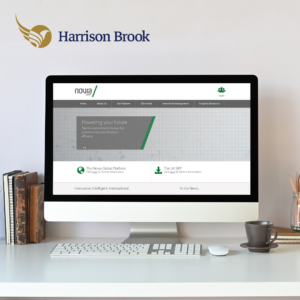
Relocating overseas is an exciting opportunity but it also raises important financial questions. When relocating abroad, it is crucial to review your entire financial life, including money management, estate planning, and financial strategies, to ensure a smooth transition and protect your assets. From understanding your UK tax obligations to managing pensions and investments abroad, getting your finances in order before leaving the UK can make a world of difference.
At Harrison Brook, we specialise in helping British expats and globally mobile professionals build a clear, compliant financial plan that travels with them. Here is how to structure your finances when moving abroad from the UK. Relocating abroad involves complex financial considerations, so taking a holistic approach to your financial life is essential for a successful international move.
Understanding Your UK Tax Position
Before leaving the UK, it is vital to clarify your tax residency status. The Statutory Residence Test determines whether you remain liable for UK income tax while living abroad. Your status as a tax resident affects where you pay tax and determines your obligations to tax authorities in both the UK and your new country of residence.
If you spend fewer than 16 days a year in the UK (or 91 days on average over four years), you are generally considered non-resident. However, your exact position depends on ties such as family, property, or work in the UK.
You must also inform HMRC that you are moving abroad by completing form P85. This helps ensure that you are not taxed twice on the same income. You must also meet your tax reporting obligations to both UK and foreign tax authorities to remain compliant.
Top tip: Some expats benefit from the “split-year” treatment, where a tax year is divided between UK residency and non-residency. This can significantly reduce your UK tax exposure and impact your overall UK tax liability.
Managing Your Bank Accounts and Credit
Many people assume they must close their UK bank accounts when they move abroad. In most cases, you can legally keep your UK current or savings accounts open, although some banks may change your account type once you become non-resident. However, banking requirements and available options may differ in your destination country, so it’s important to research local regulations and services before relocating.
It is advisable to maintain at least one UK account to cover ongoing financial commitments such as mortgage payments, pension income, or UK-based investments. You may also wish to open an international account or a multi-currency account to manage income and expenses across countries efficiently. Additionally, opening a local bank account in your destination country can help you handle everyday payments and receive local income more easily.
Credit cards can usually remain open, but be sure to update your address with the provider. Cancel any unused credit facilities to reduce risk of fraud or unintentional charges.
What Happens to Your UK Debt When You Move Abroad
UK debts, including credit cards, loans, and mortgages, do not disappear when you move abroad. Lenders can still pursue repayments through international collection agencies.
If you are in debt, it is important to continue making payments to protect your credit history. Contact your lender before leaving the UK to update your address and arrange online access or automatic payments.
If you have a UK mortgage, discuss your move with the lender. Some will require consent before renting out your UK property while living overseas.
How to Leave the UK and Keep Your Finances in Order
Before you board the plane, make sure to:
- Notify HMRC and complete all relevant forms
- Inform your banks and pension providers of your change in residence
- Update wills and beneficiaries to reflect your new circumstances
- Review your health and life insurance for international coverage
- Create an emergency fund in an easily accessible currency
- Research local taxes and local laws in your destination country to ensure compliance and proper planning
Building a financial plan before leaving ensures that your assets remain secure and that you continue to meet your financial goals, wherever you live.
Planning Your Pensions and Investments Abroad
UK pensions often remain accessible after you move overseas, but your options depend on your destination. Choosing the right pension scheme is crucial for ensuring portability, investment flexibility, and compliance with local regulations.
For most expats, transferring to an International SIPP provides flexibility, lower fees, and continued access to a wide range of investments.
In some cases, QROPS (Qualifying Recognised Overseas Pension Schemes) may be available, but post-Brexit regulations have made these more limited, particularly within the EU. A self invested personal pension can also be an attractive option for UK expats, offering greater control over pension funds and adaptability to international circumstances.
Professional advice is key to determining whether a SIPP transfer, QROPS, or leaving your pension in the UK is most suitable for your goals and tax situation. Expats should also consider private pension options and the importance of retirement planning to manage pension contributions and withdrawals effectively across borders.
Additionally, be aware of capital gains tax implications when selling UK assets or investing abroad.
Avoiding Double Taxation
The UK has Double Taxation Agreements (DTAs) with many countries, which prevent you from being taxed twice on the same income. These agreements help you avoid double taxation by ensuring you do not pay tax on the same income in both countries. It is important to check if a double taxation agreement exists between the UK and your new country of residence.
You may still be taxed in the UK on certain income types, such as UK rental income or government pensions. However, you can usually offset this against tax paid abroad. If no double taxation agreement exists, you may be able to claim a foreign tax credit to reduce your UK tax liability for taxes paid overseas.
For peace of mind, consult a cross-border financial adviser or an expat-focused tax specialist to ensure that your structure remains compliant in both jurisdictions.
How Much Money Do You Need to Move Abroad from the UK
The amount required depends on your chosen destination, lifestyle, and whether you rent or buy property. Creating a monthly budget is essential to manage your finances effectively when you live abroad, as it helps you account for currency fluctuations and unexpected expenses.
As a general guide, you should have:
- At least six months of living expenses in savings
- Funds for relocation costs such as visas, travel, and housing deposits
- Health insurance cover for your first few months abroad
Consider opening a multi-currency account to manage funds across GBP, EUR, or USD. This can help you avoid unnecessary exchange rate losses when transferring between currencies.
Securing Health Insurance for Expats
When moving abroad, securing private health insurance should be a top priority to protect your health and financial wellbeing. Health insurance requirements can vary significantly from one new country to another, and in many cases, proof of adequate coverage is necessary for residency or visa approval. Private health insurance offers peace of mind by covering medical expenses that may not be included in local healthcare systems, and can provide access to a wider network of hospitals and specialists.
Before choosing a policy, carefully review the coverage area, policy limits, and any exclusions for pre-existing conditions. It’s also important to understand how the local healthcare system operates and whether your new country has any reciprocal healthcare agreements with the UK that could affect your needs. Consulting a financial adviser or insurance expert can help you navigate the complexities of international health insurance, ensuring you and your family have the right protection in place as you settle into life abroad.
Estate Planning Considerations When Moving Abroad
Estate planning becomes even more important when you move abroad, as local inheritance laws and tax implications can differ greatly from those in the UK. It’s essential to review and update your will to reflect your new circumstances and ensure your assets are distributed according to your wishes. In some cases, you may need to create a new will or establish a trust that complies with the laws of your new country.
Be aware that inheritance tax rules and local inheritance laws may affect how your estate is taxed and passed on to beneficiaries. Cross border financial planning is crucial to avoid unexpected tax liabilities and to ensure your estate is managed efficiently.
Managing Currency Fluctuations and International Transfers
Currency exposure is a key consideration for anyone moving abroad, as exchange rate fluctuations can have a significant impact on your spending power and overall financial security. Managing your finances across multiple currencies requires careful planning to avoid unnecessary transaction fees and losses due to unfavourable exchange rates.
Consider opening multi currency accounts or using international bank accounts to hold and manage funds in different currencies. Forward contracts can help lock in exchange rates for future transfers, providing greater certainty over your finances. Specialist money transfer services often offer better rates and lower fees than traditional banks, helping you maximise your funds when transferring money between countries. Regularly reviewing your currency strategy and seeking advice from a financial planning expert can help you manage currency exposure and protect your wealth as you adapt to life in your new country.
Building an Emergency Fund for Life Abroad
An emergency fund is a vital financial safety net when living abroad, providing security against unexpected events such as medical emergencies, job loss, or sudden repatriation costs. When moving abroad, aim to set aside enough to cover at least three to six months of living expenses, taking into account the cost of living, healthcare costs, and any uncertainties in your new country.
Holding your emergency fund in a multi currency account or an easily accessible savings account can offer flexibility and quick access to funds when needed, especially if you need to manage expenses in multiple currencies. Regularly review and adjust your emergency fund as your circumstances change to ensure it remains sufficient for your needs. By prioritising your emergency fund as part of your financial planning, you can maintain financial security and peace of mind while living abroad.
Setting Up for Long-Term Financial Success
Once abroad, review your financial plan at least annually. Changes in residency, income, or regulation can impact tax efficiency.
Regularly review your pension investments and ensure they are aligned with your risk profile and long-term objectives. Many expats also benefit from offshore investment bonds or assurance-vie policies in Europe for tax efficiency and estate planning. Ongoing financial planning is especially important for UK expats, as managing UK assets and understanding the implications of being a UK resident or non-resident can significantly affect tax obligations and long-term financial security.
Partnering with a regulated cross-border adviser such as Harrison Brook ensures your portfolio remains fully compliant and optimised, no matter where life takes you.
FAQs – How to Structure Your Finances When Moving Abroad from the UK
Can I keep my UK bank account when living abroad?
Yes, most banks allow this, but you must update your address and confirm non-resident status.
Will I still pay UK tax if I move abroad?
It depends on your residency status. Non-residents are generally only taxed on UK-sourced income.
What happens to my UK mortgage if I leave the country?
You remain responsible for payments. Inform your lender and confirm whether you need consent to let your property.
Can I move abroad if I have UK debt?
Yes, but the debt remains your responsibility. Arrange repayment plans before leaving.
Should I transfer my UK pension overseas?
This depends on your residency, tax treatment, and retirement goals. A regulated adviser can help determine whether an International SIPP or other structure suits your needs.
Take Expert Advice Before You Move
Financial planning across borders requires careful coordination between tax, banking, pensions, and investments. Whether you are relocating for work, retirement, or a new lifestyle, taking advice from a regulated international adviser ensures your finances remain secure and tax-efficient. It is also important to seek advice on inheritance tax planning as part of your cross-border financial strategy.
Speak with a Harrison Brook adviser today to receive a personalised financial review and discover how to best structure your wealth for your new life abroad.



